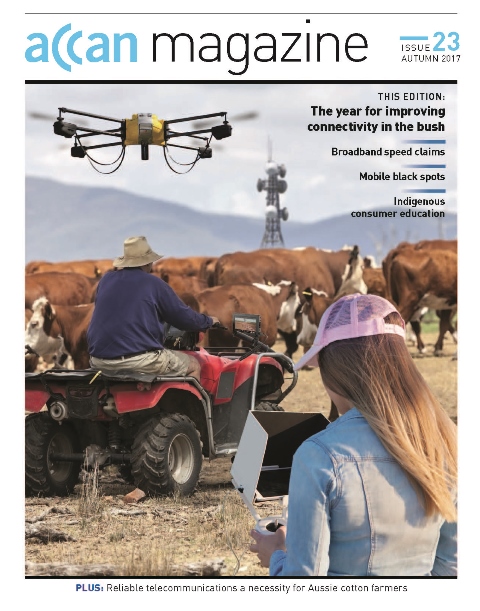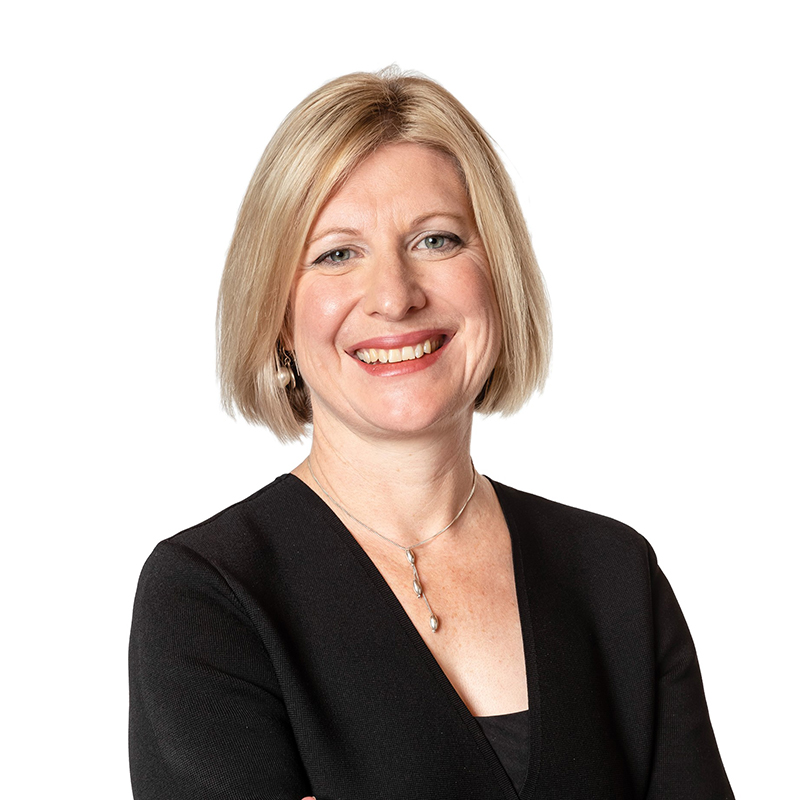
Download: ![]() ACCAN Magazine Issue 23 Autumn 20173.76 MB(Note: reading order not accessible)
ACCAN Magazine Issue 23 Autumn 20173.76 MB(Note: reading order not accessible)
Download accessible version:![]() ACCAN Magazine Issue 23 Autumn 2017 - accessible version38.93 KB
ACCAN Magazine Issue 23 Autumn 2017 - accessible version38.93 KB
ACCAN often hears stories from consumers spending hours waiting and trying to resolve problems with telcos (eg on the phone, in shops, or via chat windows). We know that all this time has a value to consumers but what is the cost?
A new report released from ACCAN provides advice on how to estimate the cost of consumer wait time.
Towards the end of 2019, ACCAN started thinking about what a fully accessible communications sector would look like. We wanted to develop a roadmap of shared goals to illustrate what is needed to ensure all people with disability in Australia have full and equal access to communications technologies and services.
In developing the roadmap, ACCAN sought feedback from a range of organisations supporting people with disability. We asked three key questions:
- What communications issues do people with disability currently experience?
- What communications issues might people with disability experience in the future?
- What approaches could help address these existing and anticipated communications issues?
University of Melbourne
This project is an extension of research funded by the Melbourne Social Equity Institute (MSEI), undertaking a survey and focus groups with the residents (representing 39 language groups) of Carlton Public Housing Estate in central Melbourne to analyse their strategies for coping with limited connectivity. The ACCAN grant will be used to conduct one-on-one interviews with 12 residents and provide interpreting services.
Robin Wilkinson’s contribution to consumer representation in telecommunications has been extensive over a 30-year period. As a founding member of ACCAN, Robin has been a supporter of the organisation since its inception.
Robin was also a member of the Consumers’ Telecommunications Network (CTN) Board from the outset of the organisation’s establishment in 1990. After being Deputy Chairperson for many years, she was elected CTN Chairperson in 2004 and held the position until 2007. Representing Tasmanians with Disabilities, Robin was an active member on the Telstra Consumer Councils and the Optus Consumer Liaison Forum.
In her advocacy on behalf of consumers, Robin focused on accessible communications equipment, emergency services, and priority assistance. Her extensive expertise in consumer education meant she was actively involved in working with the regulator, AUSTEL on an extensive re-numbering initiative of all phone numbers in Australia between 1994-1998.
Robin is also known for her promotion of the rights of people with disabilities in communications, leading to international recognition of the work of the CTN and consumer representation in Australia. She sought to build an understanding of universal design principles and the value of consumer consultation in product design and development. Notably, she was a member of the Australian delegation to the 10th Global Standards Collaboration (GSC) meeting in Nice, France in 2005 and the 11th GSC meeting in Chicago, USA in 2006 where she gave presentations to leading engineers and regulators from around the world.
Robin was responsible for ensuring inclusive practices at CTN, and this approach was the basis for the participatory culture that is now a part of ACCAN’s DNA. As a consumer representative Elder, Robin was honoured as a special guest at the ACCAN m-Enabling Conference in 2013 in Sydney. Since then, she has continued to mentor and support ACCAN staff who value her extensive knowledge and history on consumers’ accessibility and telecommunications needs for many years. Her approach of “nothing about us without us” is now embedded in the approach to consumer advocacy in communications in Australia.
The summary below outlines ACCAN’s activities from 1 September – 30 November 2021
![]()
On 13 September 2024, ACCAN, the Consumer Action Law Centre, CHOICE and Super Consumers Australia welcomed an announcement from the Albanese Government that consultation on a draft bill - the proposed Scams Prevention Framework - will start today. The joint statement can be found below.
“I congratulate Assistant Treasurer Stephen Jones and the Albanese Government for pushing ahead with these scam reforms, and imposing tough obligations on industry to protect consumers, I want to thank him for this important work,” Consumer Action Law Centre CEO Stephanie Tonkin said.
Write comment (0 Comments)Australia’s peak communications consumer body, ACCAN, has expressed deep concern over new Telecommunications Industry Ombudsman (TIO) data, which reveals a sharp increase in consumer complaints and a troubling rise in unresolved cases late in late 2024.
Read more: Worrying new data the tip of telco complaints iceberg
ACCAN recently submitted to the Australian Communications and Media Authority (ACMA) on their 2025-26 compliance priorities. The ACMA provides an essential regulatory function, and its compliance priorities have material consequences for Australian consumers.
Consumers, government, regulators and industry are all stakeholders in a radically shifting communications environment. Together we are responsible for shaping a competitive, efficient and fair communications market that deliver all the potential benefits of affordable, available and accessible communications services to end users.
The 2010 ACCAN National Conference and Consumer Summit asks participants to think about the opportunities and challenges that we face in the provision of essential communications services in a digital age. We’ll explore opportunities to make the market work better for consumers, with a strong emphasis on actively ensuring no-one is left behind.
Read more: ACCAN National Conference and Consumer Summit 2010





